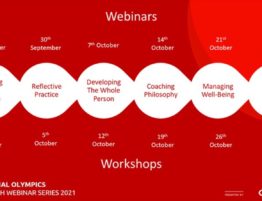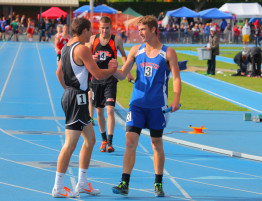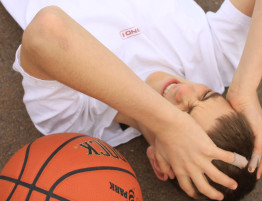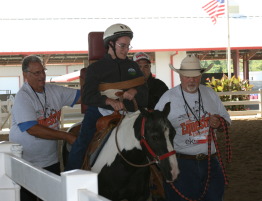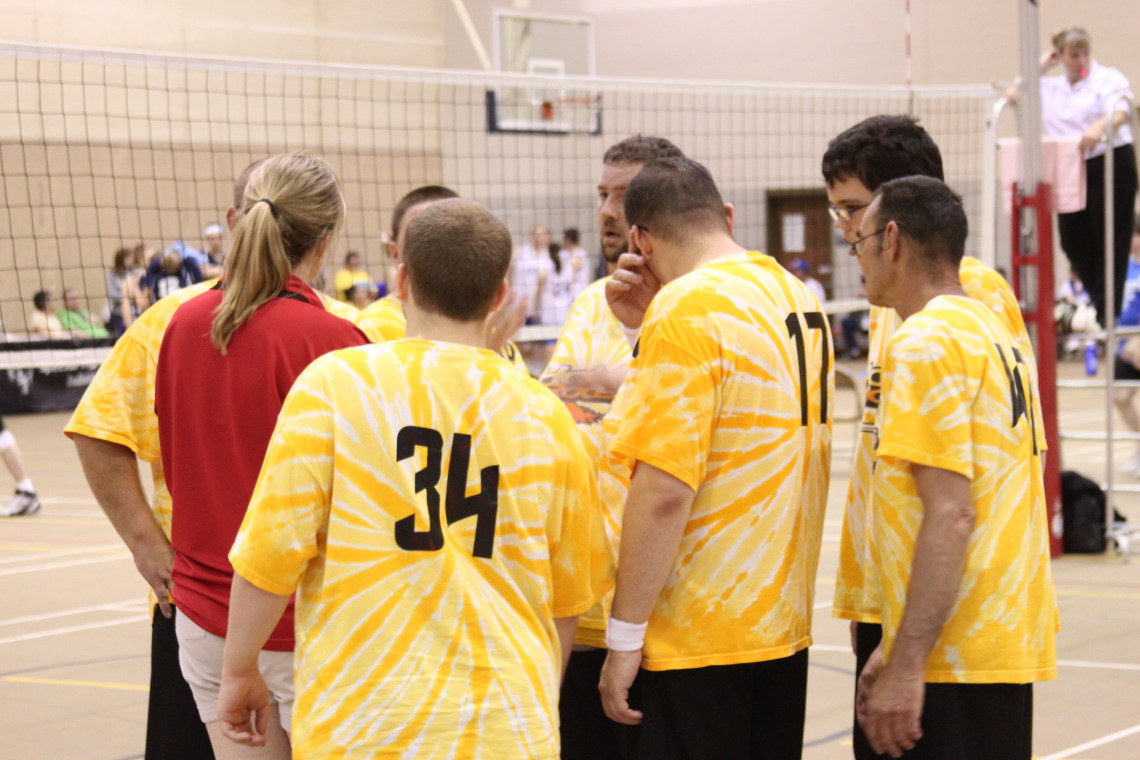
Athlete Conduct
The coach is responsible for keeping athletes under control. Do so by setting a good example and by disciplining when necessary. Set team rules for good behavior. If athletes attempt to cheat, fight, argue, badger, or yell disparaging remarks, it is your responsibility to confront the misbehavior. Initially, it may mean removing athletes immediately from the competition or practice. Let them calm down, speak to them quietly, and explain that his or her behavior is not acceptable for your team and if they want to participate, they must not repeat the action. Allow athletes to return to play when ready, able and in control of their emotions.
Consider team rules in these areas of competition conduct:
- Athlete language
- Athlete behavior
- Interactions with officials or judges
- Discipline for misbehavior
Respect opponents and officials. Without them, there wouldn’t be a competition. Officials help provide a fair and safe experience for athletes and, as appropriate, help them learn the sport. Opponents provide opportunities for your team to test itself, improve, and excel.
You and your team should show respect for opponents by giving your best efforts. Showing respect means being civil to your opponents. Don’t allow your athletes to “trash talk” or taunt an opponent. This behavior is disrespectful to the spirit of the competition and to the opponent. Immediately remove athletes from a competition or practice if they trash talk or taunt an opponent. When appropriate, request that violations be called. Enforcing the rules and calling violations assists athletes in maintaining a high level of their skills and reinforces their learning the rules. As long as the calls are being made consistently on both sides, most of your officiating concerns will be alleviated.
Coaching Tip
Keep your demeanor even and positive, conduct your responsibilities the same regardless of the score, help correct your athletes’ errors in a positive manner, and continue to offer encouragement to each athlete.
After Competition
When the competition is over, join your team in congratulating the coaches and athletes of the opposing team, and then be sure to thank the officials. Check on any injuries athletes may have sustained during the competition and inform athletes of how to care for them. Be prepared to speak with the officials about any problems that occurred during the competition. Then hold a brief meeting—or “team circle”—to ensure that your athletes are on an even keel, whether they won or lost. Do a “Cool Down,” stretching all major muscles.
This can either be done separately or incorporated into your team circle while you address the team.
When celebrating a victory, make sure your team does so in a way that doesn’t show disrespect for the opponents. It is okay and appropriate to be happy and celebrate a win, but do not allow your athletes to taunt the opponents or boast about their victory. Keep winning in perspective. Winning and losing are a part of life, not just a part of sport. If athletes can handle both equally well, they’ll be successful in whatever they do. Athletes’ self-worth should not be tied to the win or the loss. Recognize and reward efforts and attitudes.
Athletes are competitors, and competitors are disappointed in defeat. If your team has made a winning effort, let them know this. After a loss, help them keep chins up and maintain a positive attitude that will carry over into the next practice and contest.
Coaching Tip
Immediately following a competition, regardless of the outcome, stay positive. When the athletes return to practice after a competition, make certain that you let the previous competition go, learn from the experience, make needed corrections, and focus on the next opponent and next competition.
Post-Competition Team Meeting
Following the competition, gather your team for a “team circle” in a designated area for a short meeting. The athletes can sit or kneel on one knee, and they may take off any extra equipment, if applicable. Before this meeting, decide as a coaching staff what to say and who will say it. Be sure that the coaching staff speaks with one voice following the competition.
If your athletes have performed well in a contest, compliment them and congratulate them. Tell them specifically what they did well, whether they won or lost. This will reinforce interest in repeating good performances. Don’t use this time to criticize individual athletes for poor performances in front of teammates. Help athletes improve skills, but do so in the next practice, not immediately after the competition.
The post- competition team circle isn’t the time to go over tactical problems and adjustments. The athletes will be excited after a win or disappointed after a loss and won’t absorb much tactical information. Your first concern should be your athletes’ attitudes and mental well-being. You don’t want them to be too high after a win or too low after a loss. This is the time you can be most influential in keeping the outcome in perspective and keeping them on an even keel. Set goals based on the sport’s statistics such as rebounds, steals, turnovers, completed passes, field goals and free throws (attempts and makes), fast breaks, etc. Following the game, note how many of those goals were achieved; those goals not achieved provide information on what we need to work on next.
Remember, too, that although the final outcome of the competition may be extremely important to you, the staff, and some of the parents, sometimes athletes are more focused on the possibility of pizza after the competition. Realize that the majority of your athletes are participating to have fun; their desire to go out together for something to eat rather than reliving the competition is not a reflection on the desire to perform well. Stay positive, allow the athletes to be themselves, and avoid making too much over the outcome of the competition.
Finally, gather your athletes, coaches and parents/providers, go to your vehicles and drive home. Ensure your athletes have appropriate transportation.

